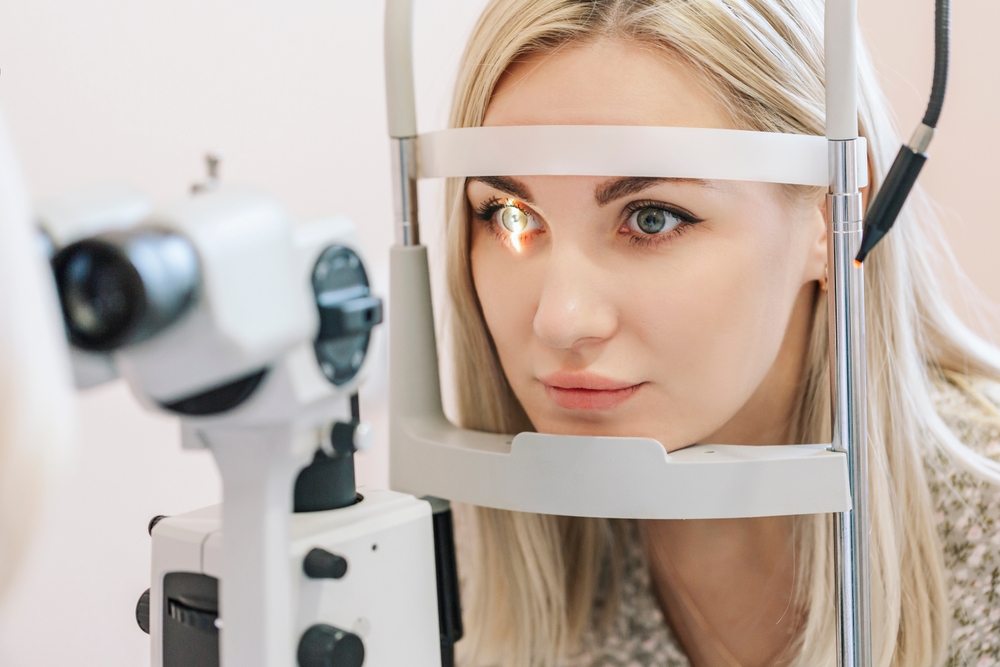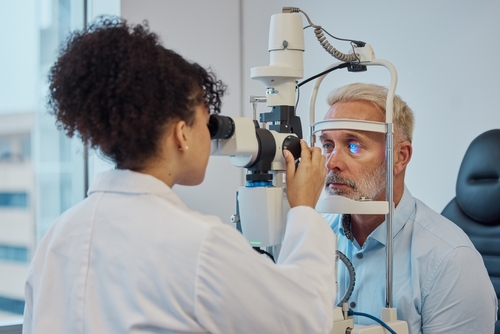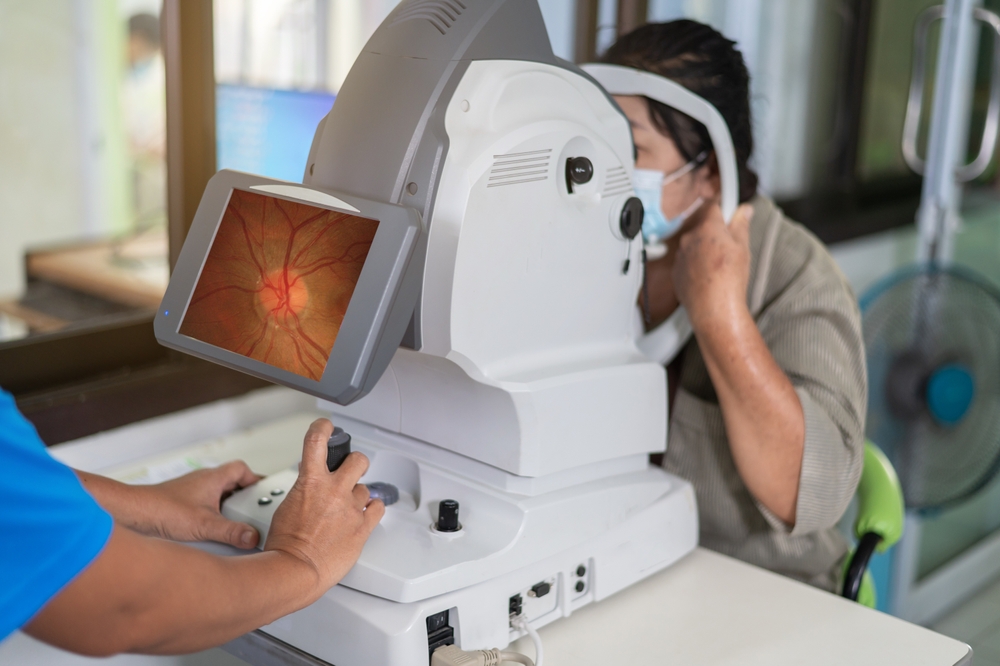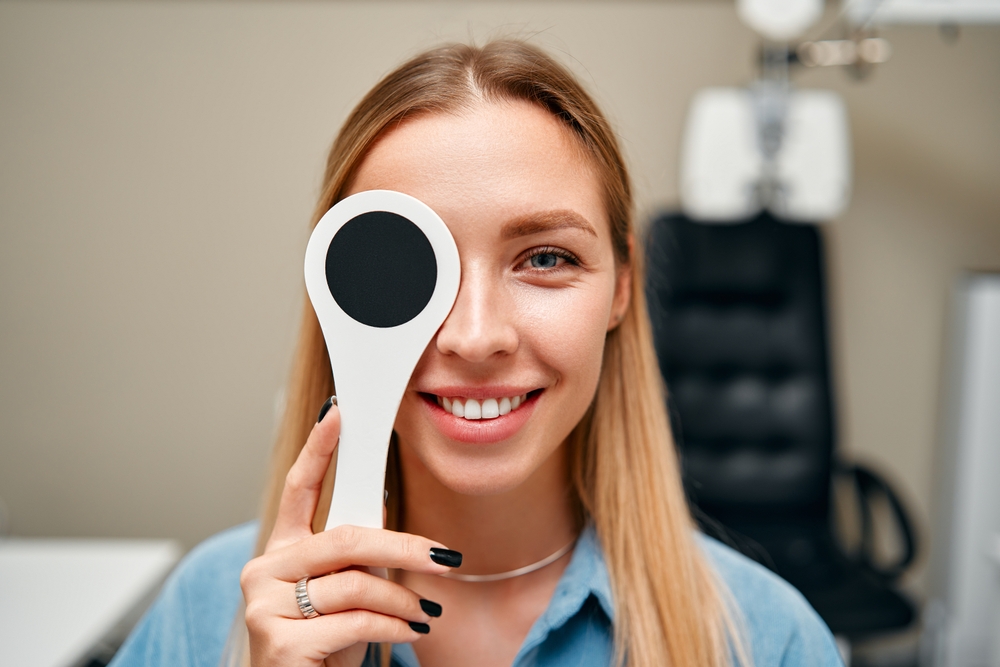Blog post by: Eye Physicians of Long Beach

The eyes are often described as windows to the soul, but they are also vital indicators of your overall health. As remarkable organs, your eyes not only enable you to see and experience the world but also play a crucial role in detecting underlying health conditions. Regular eye exams are essential for maintaining both your vision and your general well-being.
That’s why you shouldn’t wait until your vision deteriorates to visit your eye doctor. You can prioritize your eye and overall health with the help of frequent eye exams.
Keep reading to learn more about why eye exams are a crucial part of staying healthy!
Why Do Eye Exams Matter?
Frequent eye exams play a crucial role in protecting your eyes and overall well-being, and here’s why:
Monitor Changes in Vision
Your vision may not be as clear as you imagine. Over time, it can change due to factors like lifestyle, age, underlying health conditions, and hormone fluctuations.

Vision changes often happen so slowly that you might not notice anything different about your vision. Regular eye exams help monitor any changes in your vision and reveal if you require visual aids or a new prescription.
That can prevent the lingering side effects of an outdated prescription, such as frequent headaches, eye strain, light sensitivity, and eye fatigue. During your examination, your eye doctor will perform various tests, including a visual acuity and refraction, to determine if you need glasses or contact lenses.
The correct prescription can make all the difference in your everyday life. It will allow you to enjoy crisp, sharp, and comfortable vision whether you’re using your phone, working on a computer, or driving.
Evaluate Overall Eye Health
For many, dry eye, eye allergies, and eye infections are persistent problems that can affect day-to-day life. For others, cataracts, glaucoma, macular degeneration, and diabetic retinopathy can limit your ability to live independently. Beyond vision correction, frequent eye exams can help maintain your eye health.
Eye exams enable your ophthalmologist to evaluate your overall eye health. That way, they can provide an accurate diagnosis and recommend the best treatment options, such as lifestyle changes and prescription eye drops, to alleviate discomfort and ensure clear, healthy vision.
Timely Detection of Eye Diseases

Many serious eye conditions are manageable when detected promptly. Frequent eye exams are your best defense against vision-threatening eye conditions.
Eye conditions such as glaucoma, diabetic retinopathy, and macular degeneration may sneak up on you, usually without apparent symptoms in the initial stages. They can silently damage your vision before you realize there’s a problem.
By the time you experience any symptoms, the condition has advanced and caused irreversible damage. Fortunately, eye exams allow your ophthalmologist to uncover these diseases early on, when they are most treatable before they progress and cause permanent vision loss and blindness.
The earlier they’re caught and detected, the less damage they can do. Timely detection and treatment can slow or even halt the progression of serious eye conditions and save your sight.
Detection of Health Conditions
Exam exams not only help maintain your eye and vision health but also provide a clear picture of your overall health. Changes in your eyes, detected during regular eye exams, are usually the first signs of systemic health disorders.
Changes in your eyes can be used to diagnose conditions such as:
- Diabetes Mellitus
- Hypertension
- Autoimmune Diseases like Rheumatoid Arthritis, Sjogren’s Syndrome, Lupus Ankylosing Spondylitis, Sarcoidosis, Behçet’s Disease, Multiple Sclerosis, Graves’ Disease, Systemic Sclerosis (Scleroderma), Psoriatic Arthritis, Polymyalgia Rheumatica, Crohn’s Disease, Ulcerative Colitis, Wegener’s Granulomatosis (Granulomatosis with Polyangiitis), Dermatomyositis, and Kawasaki Disease
- Thyroid Disorders
- Multiple Sclerosis
- Systemic Lupus Erythematosus
- Sickle Cell Disease
- Infectious Diseases such as HIV/AIDS, Syphilis, Tuberculosis, Herpes Simplex Virus, Herpes Zoster (Shingles), Cytomegalovirus (CMV), Toxoplasmosis, Lyme Disease, West Nile Virus, Epstein-Barr Virus (EBV), Cat-Scratch Disease (Bartonella henselae), Onchocerciasis (River Blindness), Histoplasmosis and Toxocariasis
- Cardiovascular Disease
- Chronic Kidney Disease
- Wilson’s Disease
- Marfan Syndrome
- Myasthenia Gravis
- Vascular Diseases like Giant Cell Arteritis, Thrombophilia, and Sickle Cell Disease.
- Neurological Disorders such as Stroke and Pituitary tumors
- Metabolic Disorders such as Vitamin A Deficiency and Hyperlipidemia
- Endocrine Disorders like Pituitary Tumors, Cushing’s Syndrome, and Hyperparathyroidism
- Cancers such as Leukemia, Lymphoma, Breast Cancer, Lung Cancer, Prostate Cancer, Melanoma, and Gastrointestinal Cancers (e.g., colon cancer)
- Systemic Infections
If an eye exam reveals a possible medical condition, your eye doctor may refer you to a specialist for further testing, allowing for timely intervention.
When Should You Have Eye Exams?
How often you have eye exams will depend on any existing vision problem, age, and certain risk factors. Here’s a general guideline:
Adults
If you have healthy vision and eyes, you should get a comprehensive eye exam once in your twenties, followed by two exams in your thirties.
However, there are exceptions:
- If you wear contact lenses or glasses, visit your eye doctor annually
- If you have eye pain, an injury, an infection, or suddenly see flashes or floaters, contact your eye doctor without delay
Your next eye exam should be at age forty. That’s when signs of vision changes and eye conditions usually appear.
Early detection and treatment of eye conditions can help protect your sight.

People with Risk Factors
You’ll need more frequent eye exams if you have a pre-existing eye condition or risk factors such as:
- Diabetes
- High blood pressure
- A family history of eye disease
Following your eye exam, your eye doctor will let you know how often you should get your eyes checked. Be sure to follow the recommended schedule to ensure optimal eye health.
Older Adults
If you’re sixty-five and older, get eye exams every one to two years. Your ophthalmologist will look for signs of age-related eye conditions such as:
- Cataracts
- Age-related macular degeneration
- Diabetic retinopathy
- Glaucoma
Preserve Your Sight and Health with Eye Exams
Regular eye exams at Eye Physicians of Long Beach can help our experienced doctors protect your vision, keep your eyes healthy, and provide an overall health checkup.
Have you had your eye exam yet this year? If not, schedule your appointment today at Eye Physicians of Long Beach to prioritize your vision, eyes, and overall health.
